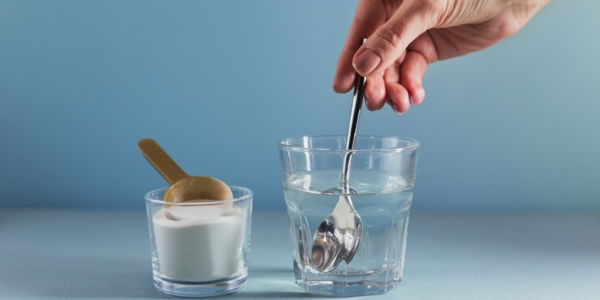Salt Water Rinse for Oral Health – Natural Remedy Guide
Why Salt Water Rinse Is a Timeless Oral Health Remedy

Oral health is a cornerstone of overall well-being, yet many overlook simple, natural methods that support a healthy mouth.
One such age-old remedy is the salt water rinse, a basic but powerful tool that has been used across cultures for centuries to promote oral hygiene and soothe mouth ailments.
But why has this humble saline rinse stood the test of time? And more importantly, does salt water rinse really help oral health? We delve deep into the science and benefits of salt water rinses, how to use them effectively, and what modern dentistry says about this natural mouthwash alternative.
What Is a Salt Water Rinse?
A salt water rinse is a solution made by dissolving salt (usually table salt or sea salt) in warm water. It is used as a mouth rinse or gargle, primarily for its cleansing and healing properties.
Why salt? Salt has natural antiseptic and anti-inflammatory qualities. The saline solution creates an environment that inhibits bacterial growth, promotes healing, and helps balance the pH in your mouth.
The Science Behind Salt Water Rinse for Oral Health
Salt water works through a few key mechanisms:
- Osmosis and Dehydration of Bacteria: Salt draws water out of bacterial cells, effectively dehydrating and killing harmful microbes.
- pH Balance: Salt water is slightly alkaline, helping neutralize acids produced by bacteria that can erode enamel.
- Anti-Inflammatory Effects: It helps reduce inflammation and swelling in the gums and oral tissues.
- Promotes Healing: Salt water stimulates blood flow in the gums, accelerating repair after dental procedures or injuries.
Key Benefits of Salt Water Rinse for Oral Health
1. Reduces Gum Inflammation and Soothes Sore Gums
Gingivitis, an early form of gum disease, causes redness, swelling, and bleeding gums. Salt water rinse can help alleviate these symptoms by reducing inflammation and cleansing the gums.
A study published in the Journal of Clinical and Diagnostic Research found that salt water rinses significantly improved gum health when used as a complementary therapy.
2. Speeds Up Healing After Dental Procedures
Whether you’ve had a tooth extraction, dental implant, or other oral surgery, your dentist likely recommended a salt water rinse. This simple rinse promotes faster healing by reducing bacterial load and soothing tissue irritation.
3. Helps Fight Bad Breath
Bad breath (halitosis) often arises from bacteria buildup in the mouth. Salt water rinse helps reduce bacteria and neutralizes odors, providing a quick, natural way to freshen breath.
4. Assists in Managing Mouth Ulcers and Canker Sores
Mouth ulcers are painful and can interfere with eating and speaking. Salt water rinse soothes irritation, reduces bacterial contamination, and accelerates ulcer healing.
5. Natural Alternative to Chemical Mouthwashes
Many commercial mouthwashes contain alcohol or harsh chemicals that can cause dryness or irritation. Salt water rinse offers a gentle, natural alternative that’s safe for daily use without side effects.
How to Prepare and Use Salt Water Rinse
Making your own salt water rinse is simple and cost-effective. Here’s a step-by-step guide:
Ingredients:
- 1/2 to 1 teaspoon of salt (preferably sea salt or non-iodized salt)
- 8 ounces (about 240 ml) of warm water (not hot)
Instructions:
- Pour the warm water into a clean glass.
- Add the salt and stir until completely dissolved.
- Take a mouthful and swish it around your mouth for 30 seconds to 1 minute.
- Spit it out (do not swallow).
- Repeat until you’ve rinsed your entire mouth.
- Use 2-3 times daily or as recommended by your dentist.
When to Use Salt Water Rinse: Tips and Timing

- After Dental Procedures: To reduce infection risk and speed healing.
- For Gum Inflammation or Bleeding: As a daily rinse until symptoms improve.
- When You Have a Sore Throat: Gargle to soothe throat irritation.
- For Mouth Ulcers: Rinse 3 times daily for relief.
- As Part of Regular Oral Hygiene: Use 2-3 times a week to maintain oral health.
Are There Any Risks or Side Effects?
Salt water rinse is safe for most people. However:
- Avoid swallowing the rinse.
- Don’t use overly hot water to prevent burning the mouth.
- People with high blood pressure should consult their doctor if using large amounts frequently, though rinsing typically poses minimal risk.
- Excessive use may cause dry mouth or irritation in rare cases.
What Do Dentists Say About Salt Water Rinse?
Dental professionals widely recommend salt water rinse as a complementary oral hygiene practice.
Salt water rinses are a simple, cost-effective way to reduce inflammation, promote healing, and maintain oral hygiene, especially after dental treatments.”
Many dentists advise patients to use salt water rinse to avoid infections and speed recovery after extractions or surgeries.
Salt Water Rinse vs. Commercial Mouthwash: Which Is Better?
| Feature | Salt Water Rinse | Commercial Mouthwash |
| Cost | Very low | Usually moderate to high |
| Ingredients | Natural (salt and water) | Chemicals, alcohol, flavors |
| Side Effects | Minimal | Can cause dryness, irritation |
| Antibacterial Effect | Mild to moderate | Stronger antibacterial properties |
| Best Use | Healing, soothing, maintenance | Freshening breath, cavity prevention |
Salt water rinse is an excellent gentle alternative for everyday maintenance or healing, while commercial mouthwash might be preferred for stronger antibacterial action or breath freshening.
Conclusion
Salt water rinse is a simple, natural, and effective way to boost your oral health. Its anti-inflammatory and antibacterial properties help soothe gums, speed healing, and maintain a healthy mouth.
Whether you’re recovering from dental surgery or just want to support your daily oral hygiene, salt water rinse is a time-tested remedy worth adding to your routine.
Try incorporating a salt water rinse into your oral care today and experience its gentle healing benefits for yourself!
.